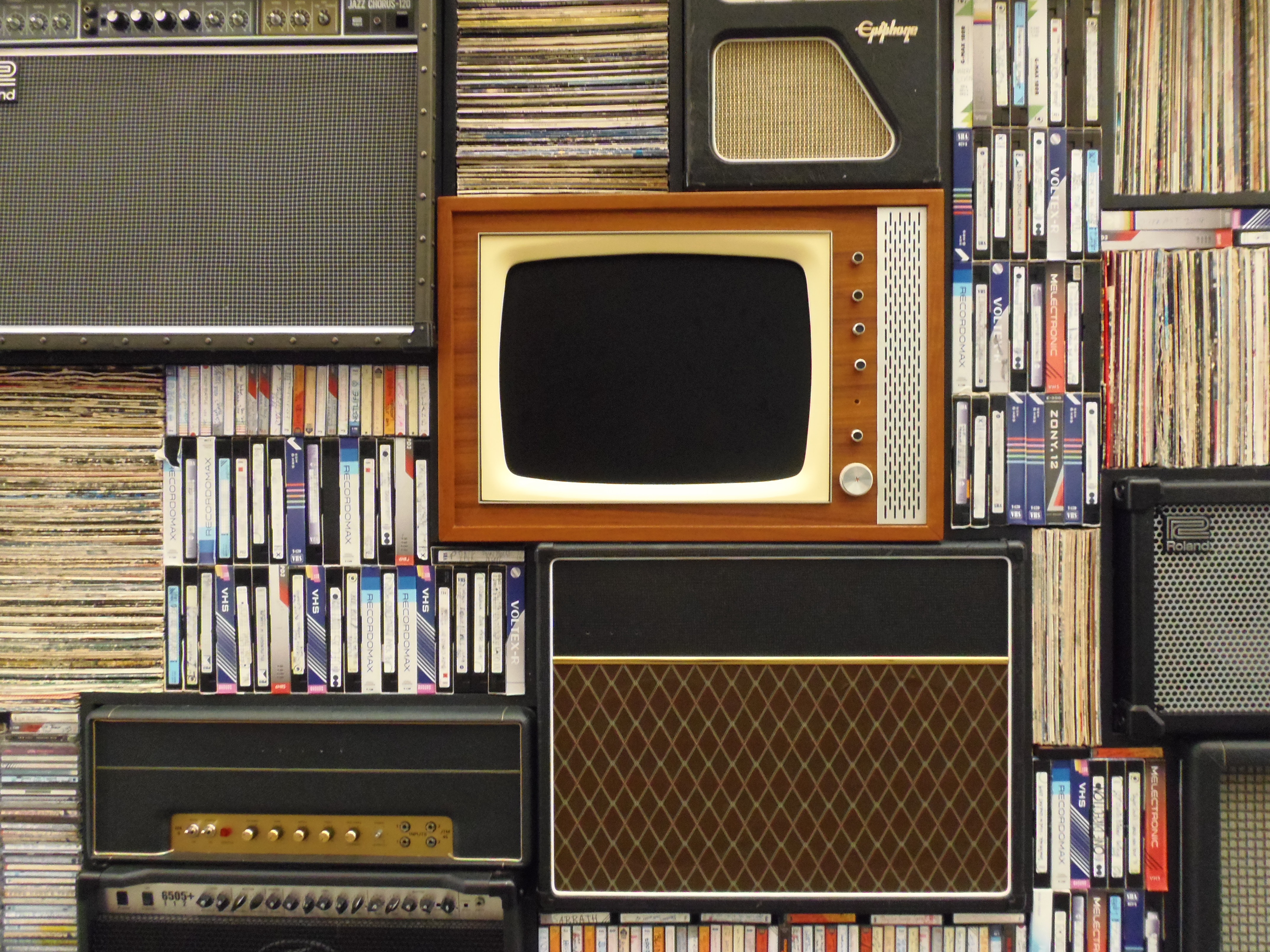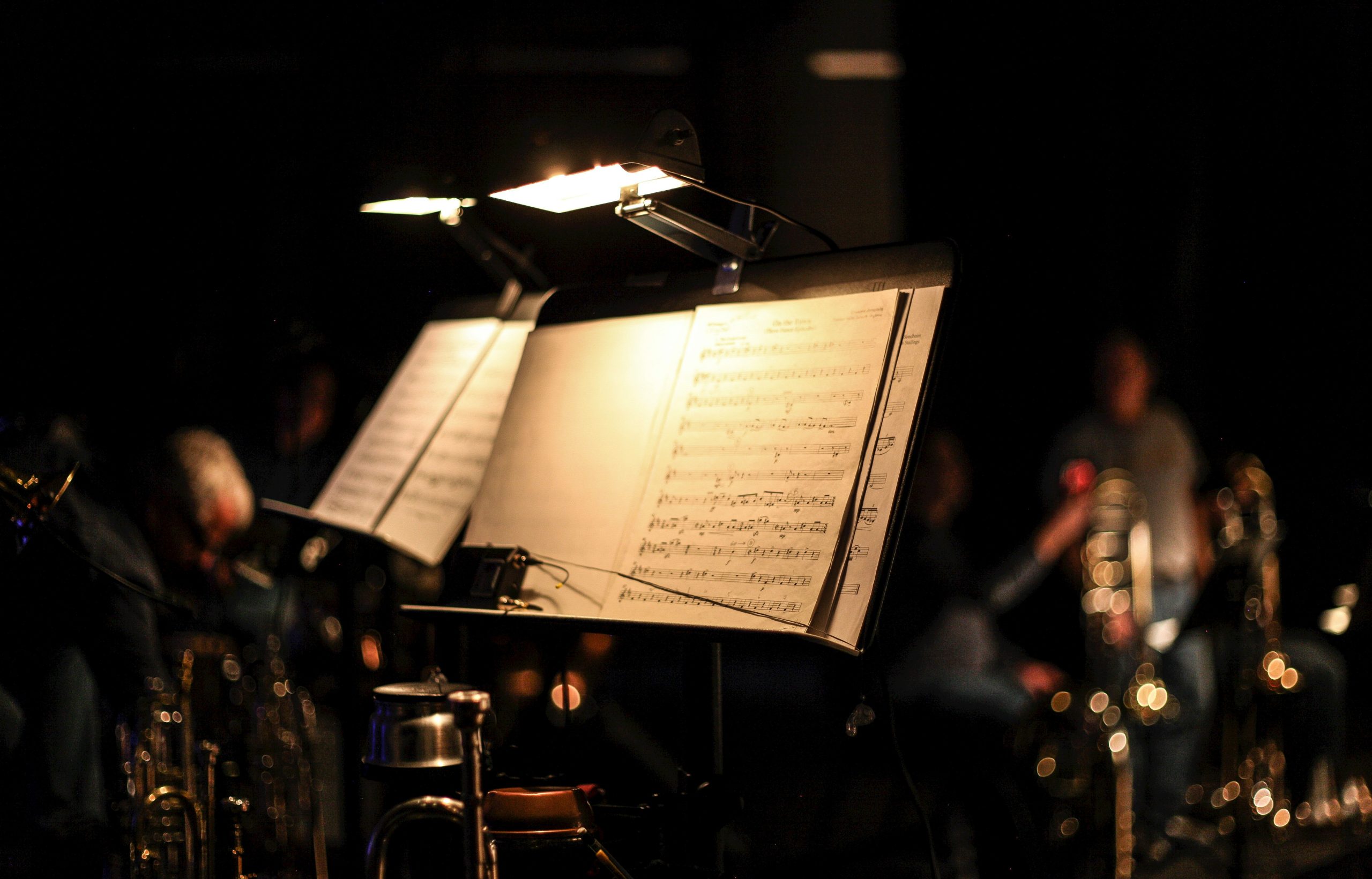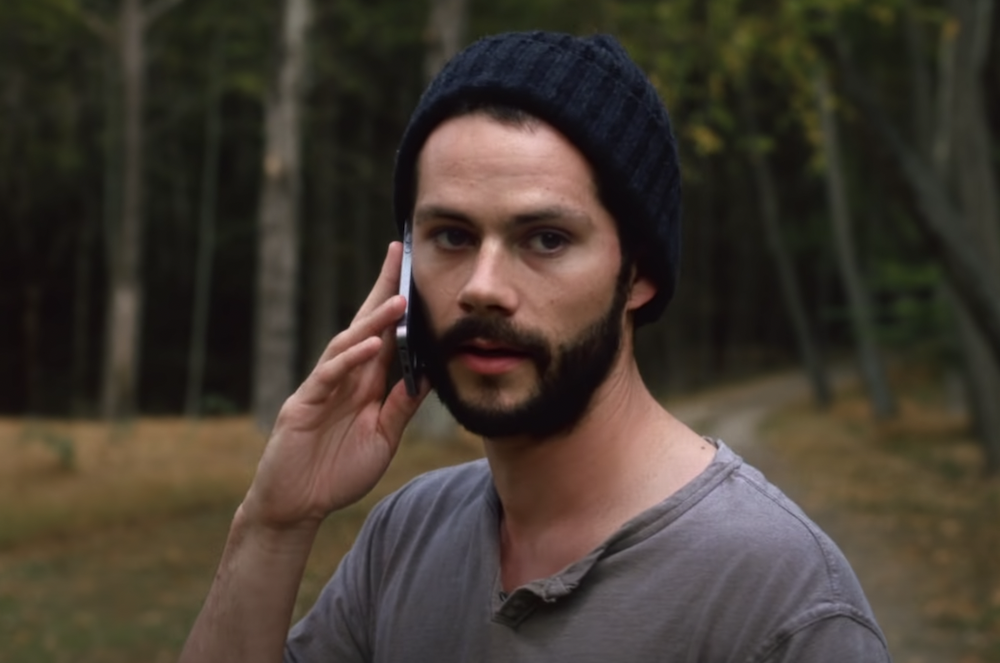Books & Culture
The Artist Formerly Known As
My cousin introduced me to Prince. Then he disappeared.

In 1986 my cousin had a Commodore 64, a TV with a split antenna that pulled Saturday Night Live from the electromagnetic field over the Vermont mountain (Eddie Murphy as Buckwheat, a cone-headed Bill Murray), and a turntable propped on a stack of records. When I’d arrive at his house in the woods, he’d put on Purple Rain while I peeled off my wool coat, its tobacco smell like the backseat of our old Toyota, my stomach upside down from the coiling drive. If you loved Prince, you can see it: flower-edged record sleeve banged up at the corners and slashed with neon purple letters, his iconic white ruffled shirt, his dark eyes staring out from the seat of a smoke-engulfed motorcycle.
The image is indelible, flawlessly constructed. Prince was acutely conscious of his visual identity and relished the provocative complexity of it — anything to make us blush or breathe a little harder. He was also a master of the disappearing act, the epitome of reinvention, receding and returning from rock god to mystic to sex kitten in the blink of a gold-shadowed eye. At some point, I saw Prince and I saw my cousin, not a physical likeness so much as a shared absence — a part in each of them that had existed and been taken away.
Prince was a master of the disappearing act, the epitome of reinvention.
My cousin was my favorite person in our family of writers and painters, all of whom were, on any given day, either in a bloody civil war or as close as the McGarrigle sisters in ecstatic ensemble. He was ten years older than me, good looking, restless. He played piano at night with his eyes closed like a shadow. I felt abundantly attended to, in his presence. Adored. He imbued in me concepts that would stay for good: sugar molecules eat your teeth in the dark; one cell carries our entire human genome; our ears still listen when we’re asleep. But there was a hard sadness in him, too, that I’d sometimes glimpse as if through a prismed periscope when he stacked the wood, heaving pieces across the yard like a javelin throw, or when he shoveled the billions of shattered ice crystals of our endless snow.
I didn’t understand the potent sexuality of the lyrics on Purple Rain yet but I loved the music and everything it made me feel. The minute the needle hit the record and the worn vibrato of the organ began like a church sermon I’d feel the imminent excitement — the “Let’s Go Crazy” moment of conception, the pulse that you couldn’t hear and not jump up and dance.
Some kids at school weren’t allowed to listen to Prince because of his suggestive lyrics, but we were artists. Grandma wrote indecent poems about oblong vegetables; I learned about self-love from Anne Sexton and Woody Allen. No one censored our music or our books, least of all my distracted mother who was raising three of us alone, whose piles of short stories and envelopes of correspondence filled our apartment’s only available counter space. She’d type and package up her 300-page novels and lug them down to the mailbox while we bickered in frayed superhero costumes and ate bowls of government-funded Kix.
From the bottom bunk of my cousin’s bed where I stayed sometimes on sleepovers across town, warm from the sit-down dinner that was always served around his family’s stove — my aunt’s basmati rice cooked over sliced potatoes and eaten with a raw egg as she’d learned in her years living in Iran — I would answer his usual questions: What was I doing in school? Who were my friends? Did I have a boyfriend? When I dreamed about Prince one night he laughed and said it was my repressed desire for the singer that made the dream.
My cousin didn’t seem to care that I was younger than him. He found my endless stream of readings and social sufferings interesting, and revealed to me a world of popular culture that was evidently everywhere except my house. We had no TV, no “Cosby Show,” no Atari projecting bright, pixelated mazes we could spend hours traveling through. Entertainment was our upright Hamlin sloping with the floor, a cassette player, books under and over everything. My old violin. What leaked in came by way of WX104, our state’s hit radio station that launched nightly through my alarm clock radio. At 8 pm the DJ would start taking calls from the sad and the love-struck, playing corny songs for their wounds. Sometimes he’d let a caller go on for a very long time and a whole story would emerge. I’d sit balanced in the kitchen on our church pew — one of the many pieces of furniture my mother found rummaging antique barns — waiting for the end: the woman walking out the door forever, the father succumbing to his disease. I’ve got just the song for you, Sheila, and for all of you out there…
“Out there” was a town over, a state away, it was stories of people and their hopes and injuries, it was the sky and the planets that my grandmother read about in her astronomy journals, and then it was inside, too, a dimension I couldn’t escape walking each day into 8th grade biology dizzy with images of blood and circulatory systems, glands, muscles, tissue. I nearly fainted when our teacher showed up with fifteen tiny scissors and a bucket of frogs. One night, studying cells on the floor of my cousin’s kitchen, he explained the lowest level of biological organization as a house with many hollow and orderly rooms. Put your hands on the walls, he said. Nothing can get through.
What does it take to close yourself up, to disappear? To really disappear, there are online guides with pictures like “How to Cultivate New Habits” (start wearing a hat indoors) and essential rules (you must go alone). WikiHow can have you gone in 10 steps. SkilledSurvival.com says your entire life will become a lie.
The experience of childhood is not unlike the experience of art, as the Russian writer Viktor Shklovsky describes it: “the sensation of things as they are perceived and not as they are known.” Which is to say, the story of my cousin was forming in me a long time, reconciling with things I could only feel as a kid and not quite grasp. I loved him. I would have chosen him over anyone. But one summer he learned a family secret that had been kept from him for years, and that was that. When he turned to me it was as though he’d never seen me before.
Prince had only recently renounced his name, deciding to become a symbol instead, simply The Artist Formerly Known as Prince, without a record label, without designation. I dreamed my cousin went to the top of a building and bent his body over the roof’s edge, a gesture toward his ending, or all of ours. When I woke up, he was gone.
I dreamed my cousin went to the top of a building and bent his body over the roof’s edge, a gesture toward his ending, or all of ours.
No song quite unspooled me like “Purple Rain.” Walking home from school I’d leap from one sidewalk crack to the next, conjuring up provocations, if a red car drives by now it means — , wanting something to happen to me though I didn’t know what. I’d turn my Walkman up until my eardrums hurt. Our town was gutless, uniform, filled with families in clean Subarus who had orderly domestic systems like chore charts and Macaroni Mondays, people my mother would call ordinary under her breath at the co-op where they were always glaring. I wanted to break into the next kingdom. I wanted to hear Prince relish the inharmonious, the oblique. His shimmery guitar with its tiny striking pangs comes at the close of “Purple Rain” like a late-night whisper that makes you fall in love. His chaos was chemical, the unstoppable force of something urgent coming. When the camera turns out to the audience in a live video of the song from a club in Minneapolis in 1993 — the whole thing bathed in a purple, sweaty glow — my heart beats with an almost agonizing envy of everyone standing in front of that moment, that minute when Prince was so sensual and alive. His face strains with the high, startling “heeee-heee hoo hoo” — a wail that is utterly animal, that ascends to the edge of the atmosphere. Even in the blur of old footage it makes my entire nervous system ignite and dissolve like a star.
Which is what makes the symbol he became when his name disappeared so figuratively right. A curious shape, part ancient Egypt, part biology, something like Ida’s Wunderhorn stabbed through by an iron-tipped spear. He was too large for language, or he was outside of it. Subverting the convention of naming itself made sense, especially when one could not pronounce it or type it into anything.
And what was left in its place? An incredible loneliness pervades many of his songs, an almost unfillable desolation. Which might be at the heart of why we make art at all. How do any of us stand quiet in the middle of a life that’s moving steadily toward its end, that has, up ahead, a total and inexorable vanishing?
He was too large for language, or he was outside of it. Subverting the convention of naming itself made sense.
When I listen to Prince now I’m back in my cousin’s bedroom, on the bottom bunk, looking up at the wood slats that hold the outline of his body suspended above me. Wool blankets piled on our feet, the damp of the forest everywhere, the dirt road running like a ribbon over the mountain. The click-click of his TV antennae trying to catch a signal in the night.
Prince died as Prince, the unsayable symbol relinquished, or he died as Prince Rogers Nelson, the name his parents gave him in 1958. I don’t know what my cousin’s name is now. He never spoke to his mother again, or his aunts, or me. I heard he had moved out of the country, then back again, that he was using a middle name instead of his first. But then the story of him ends.
And I grow more fascinated by erasure, the destruction and the freedom of it. I think about secrets and then exile of the sort we enact on ourselves. It’s a new world now where I walk, decades later, far from that town, far from the sweet anonymity of the ’80s; it’s all technology and surveillance, the whole planet on an intricate grid that can largely be viewed from any given point. I hate the dot on my cell phone map that shows me “me” while I’m running the circumference of my city park or walking to the grocery. I resent the app that lets my daughter or my husband know where I am at any moment so they can ping out their requests for ice cream, milk, postage stamps. Sometimes I want to get very lost. It soothes me to imagine flight, to conjure an escape from my life, even when it’s impractical, impossible. Is there any crack in the framework to slip through anymore?
I have never tried to find my cousin. Surely he is in plain sight of someone, somewhere. But who is he to them? A body defamiliarized, renamed? Who are any of us but an amalgam of cells, our faces like shifting genetic composites, our structures unduplicatable, a whole system of chemicals and thermodynamic reactions that rely on a painstakingly precise balance? A billion cells inside us and each one perpetually gearing up to create, to divide. “It’s the cell’s main drive,” he’d said. Now I think of the mystery of what happens — how a nucleus disassembles and re-forms. It breaks down and is reborn, over and over and over.
Distance yourself from others — WikiHow’s rule #3. Do everything slowly. Erase all documents with your name (#6), lay false leads, wear unusual clothes to a distant border where no one expects you to be. You might once again have a chance at brand-newness, then. Tabula rasa. The mind, as Aristotle said, that is nothing until it has thought.
Erase all documents with your name, wear unusual clothes to a distant border. You might once again have a chance at brand-newness, then.
One night — Dream if you can a courtyard / an ocean of violets in bloom — my cousin fell asleep first. Curious if he could hear me in his sleep as he claimed, I whispered up to the top bunk, Your orange tree is blooming! He didn’t respond, nothing twitched, no firing neuron announced itself, and eventually I fell asleep, too. But in the morning he sat up and said, “I had the most amazing dream. It was summer and my orange tree was covered in mandarins!”
I was amazed. I had broken through the gates of his sleep and spoken to him on the other side! There, where he floated like a raft on the waves of a slowing consciousness, the stony paralysis of his unfastening body going from this world to that. I had found a way in. And what he’d told me had been right: even far away, in that deep, unresponsive place where he had gone, he could hear me.
Dispose of your old personality, bit by bit. If going rogue, find a wild area where no one lives. And if the chance arises, leave behind a token for someone you loved. You won’t be seeing her again.








